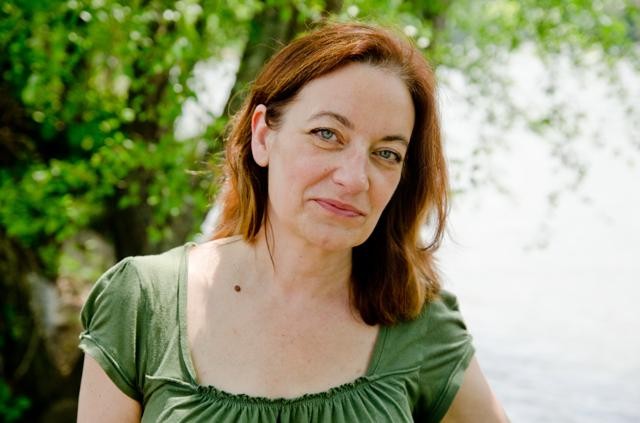When Julia Bramsen diagnosed herself with autism three years ago while living in Missouri, she soon learned how deep the misunderstandings run and how meager services are, especially for those diagnosed as adults. Most telling, it took a series of efforts to find a doctor who could give an official diagnosis.
The experience is part of what inspired her to found Autism Pride Week after she moved to Asheville a year and a half ago. Unlike most states in the country, North Carolina is “a very haven for people with autism,” says Bramsen. The state offers a more positive attitude and greater interest in exploring the needs of individuals with autism. Through the University of North Carolina’s TEACCH program, for example, people on the spectrum have the opportunity to access support and services, but much remains to be done.
Autism Pride Week, Bramsen's brainchild, was recognized by City Council and runs Sunday, June 16, through Saturday, June 22 (see “Wanna Go?” on the next page for more details).
Xpress spoke with Bramsen recently. Here are a few highlights:
Mountain Xpress: Tell us a little about yourself, and about the process that promoted you to launch Autism Pride Week.
Julia Bramsen: I self-diagnosed at the front end of a divorce three years ago, when I was still living outside of St. Louis, [Mo.] I went through three days of testing and interviews. The neuropsychologist cashed my check and then never sent me the report. … I had to find somebody else. And that's when I realized it's almost impossible to find somebody: I went through every hospital, every college, every university, looking for [someone] who would test an adult for Asperger’s. They test kids, and for adults, neuropsychologists test for Alzheimer's, stroke and traumatic brain injury through the hospital. But they wouldn't see me. I found someone who specialized in learning disabilities, [but autism] wasn't his specialty. He sent me to somebody else, who said, “There is no question in my mind that you have Asperger’s.”
As it turns out, North Carolina is a very haven for people with autism. TEACCH [provides] autism services, … and they're really good at matching services to challenges in individuals’ lives.
Is Asperger’s different from autism? No. Asperger’s is autism. It used to be two separate diagnoses and the cut off, the differentiation, was language difficulties for autistic people and an IQ below 70. [An] IQ above 70 and passable language, sometimes [in the] top 1 percent of the verbal IQ, that was Asperger’s. [The differentiation] doesn't exist anymore.
You, the founder of this event, have autism. Can you tell us about that and how it informed your work and priorities when organizing this event? That's central to … my decision to do this. The stereotype [of autism is] a 10-year-old boy who lines things up and is totally inflexible and acts out a lot. [That] had nothing to do with me. The one autistic person, nonfiction, that everyone seems to know, is [animal-science expert] Temple Grandin, and she's not much like me. She's never been in an intimate relationship. She is very much a female version of the alexithymic engineer — very logical, very science-oriented. … That didn't fit me either. And then there's the fictional version in [the movie] Rain Man. Those are your choices.
How is this event different from Autism Awareness Week? First of all, there is no Autism Awareness Week. There is Autism Awareness Month in April. The autistic community … changed the name to Autism Acceptance Month. Autism “awareness” is born out of neurotypical nonprofits raising money for the cure, for genetic research to get rid of us — things that really have little to do with making autistic people feel a part of the community.
Tell me more about Pride Week, what to expect and why you're excited. It's the first year, we don't know what to expect. … I hope that two things come out of this: One is a sense of community for autistic people, and one is a lessening of stigma. But the first thing that needs to happen is self-acceptance.
Every definition of diagnosis has a narcissistic injury, but beyond that, the real fear is that you have no sense of control of what that means in your life. You can't control what it means for you professionally; you can't control what it's going to do to your insurance; you can't control what that's going to mean in your social group, in your family, if you're ever going to get a date again if you're single; it's scarier than hell.
People on the other end of the spectrum have their own multitude of challenges. People who are more self-conscious — or aware of how different they are from the mainstream — have a different set of challenges. I meet adults all the time who are dead-set against being evaluated or diagnosed, because they're terrified of what that's going to mean. That says a lot about our society. We are not accepting of difference. Autism Pride Week, I hope, will go at least a little ways in immediately ridding us of that stigma.
— Aiyanna Sezak-Blatt can be reached at 251-1333, ext. 101, or at asezakblatt@mountainx.com.
Wanna Go? Click here for details about Autism Pride Week events.




Before you comment
The comments section is here to provide a platform for civil dialogue on the issues we face together as a local community. Xpress is committed to offering this platform for all voices, but when the tone of the discussion gets nasty or strays off topic, we believe many people choose not to participate. Xpress editors are determined to moderate comments to ensure a constructive interchange is maintained. All comments judged not to be in keeping with the spirit of civil discourse will be removed and repeat violators will be banned. See here for our terms of service. Thank you for being part of this effort to promote respectful discussion.